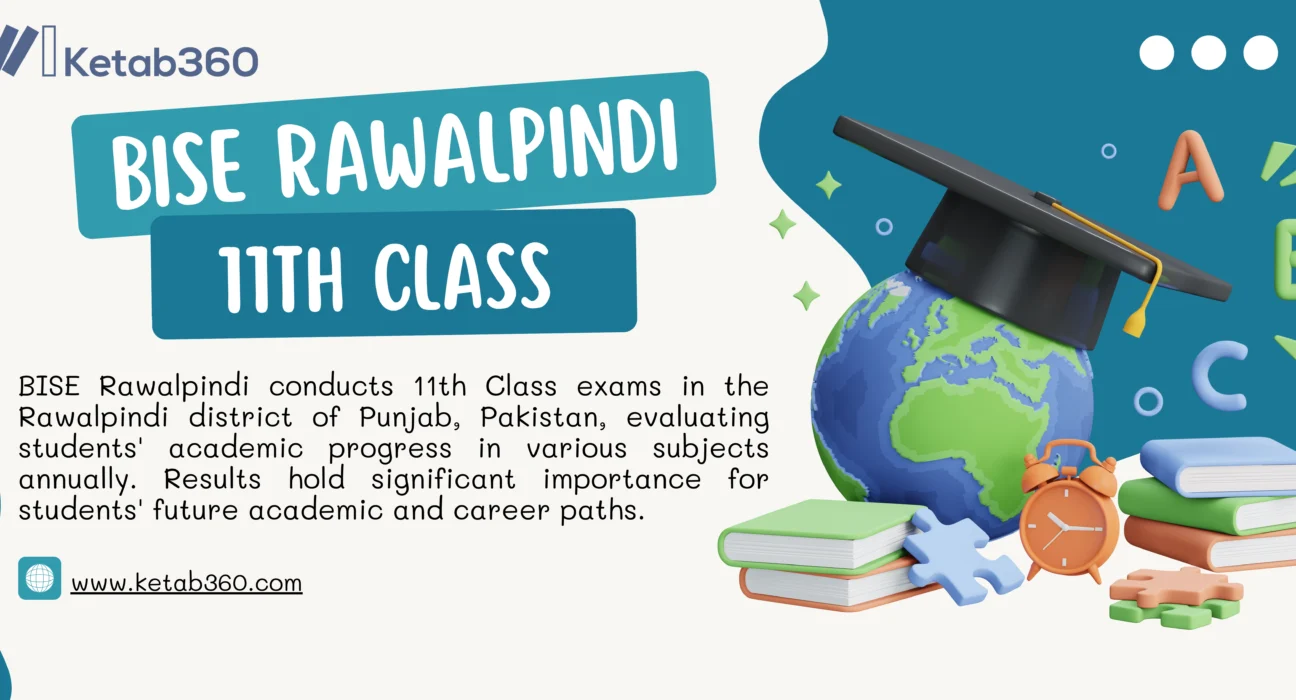Introduction:
Education is the cornerstone of progress and development in any society, and Pakistan recognizes the importance of a robust educational system in shaping its future. The Board of Intermediate and Secondary Education (BISE) Rawalpindi is a prominent educational board in Punjab, responsible for conducting examinations at the intermediate and secondary levels. Among its many crucial responsibilities, organizing the 11th class examinations holds particular significance, as it marks a pivotal moment in a student’s academic journey. In this comprehensive article, we delve into the role of BISE Rawalpindi, the importance of the 11th class examinations, the examination process, and the impact on students’ academic and professional aspirations.
The Role of BISE Rawalpindi:
Established under the Punjab Boards of Intermediate and Secondary Education Act 1976, BISE Rawalpindi aims to provide a fair, transparent, and standardized examination system for intermediate and secondary education. The board encompasses several districts, including Rawalpindi, Attock, Chakwal, and Jhelum, and it caters to both private and public institutions. BISE Rawalpindi is dedicated to upholding high educational standards and fostering an environment conducive to academic growth and achievement.
Importance of 11th Class Examinations:
The 11th class examinations are a critical juncture in a student’s academic life. Often referred to as the first-year intermediate examinations, they represent the transition from secondary education to higher secondary education. These exams hold paramount importance for several reasons:
1. Foundation for Higher Education: The results of the 11th class examinations serve as the foundation for students’ further studies. They determine eligibility for admission to universities and colleges across the country, impacting their academic and professional pursuits.
2. Career Opportunities: High scores in the 11th class exams can open doors to various scholarship programs, enabling financially challenged students to pursue higher education and realize their potential.
3. Educational Pathway: The performance in these exams helps students identify their strengths and weaknesses, guiding them towards selecting the appropriate field of study for their future careers.
4. Personal Growth: The process of preparing for and appearing in the examinations nurtures valuable skills like time management, discipline, and perseverance, which are essential for success in any sphere of life.
Examination Process:
The examination process undertaken by BISE Rawalpindi is a well-organized and systematic procedure designed to ensure fairness and transparency. Let’s explore the key steps involved:
1. Registration: Students aspiring to appear for the 11th class examinations must register with BISE Rawalpindi during the specified registration period. The registration process involves submitting necessary documents, including identification, previous academic records, and a passport-sized photograph, along with the examination fee.
2. Date Sheets: Once the registration process is complete, BISE Rawalpindi issues date sheets that provide the exam schedule for various subjects. These date sheets are crucial for students to plan their study routine effectively.
3. Examination Centers: The board designates examination centers across the region where students are required to appear for their respective papers. These centers are carefully chosen and equipped to facilitate smooth conduct and ensure an appropriate environment for the examinees.
4. Examination Format: The 11th class examinations consist of both theoretical and practical components. Theoretical papers are conducted in a written format, where students are expected to demonstrate their understanding of the subject matter. Practical exams are held separately, usually in laboratories, for subjects that require hands-on application of concepts.
5. Evaluation Process: After the completion of examinations, answer scripts are collected and sent for evaluation. BISE Rawalpindi employs experienced teachers and examiners to assess the students’ responses. The evaluation process is carried out with the utmost confidentiality and fairness, ensuring that each student’s performance is judged impartially.
6. Result Declaration: Once the evaluation process is complete, BISE Rawalpindi announces the 11th class results. The board publishes the results on its official website, allowing students to access their scores conveniently. Additionally, individual institutions may display the results on their notice boards.
Impact on Students:
The outcome of the 11th class examinations can have far-reaching consequences for students’ academic and professional pursuits. Here are some ways in which the results impact students:
1. Higher Education Opportunities: Excellent performance in the 11th class examinations opens doors to prestigious higher education institutions. Admissions to renowned colleges and universities often have merit-based criteria, and strong results enhance students’ chances of gaining admission to their desired institutions.
2. Scholarship and Financial Assistance: Several scholarship programs and financial aid options are available to students who excel in their 11th class examinations. These opportunities help deserving students overcome financial barriers and pursue higher studies.
3. Career Choices: The 11th class results provide students with insights into their academic strengths and interests. Based on their performance and passion, they can make informed decisions about their future career paths.
4. Motivation and Confidence: High scores in the 11th class exams boost students’ confidence, motivating them to perform even better in subsequent examinations. Conversely, low scores can be a wake-up call, spurring them to work harder and overcome challenges.
5. Parental Expectations: In Pakistani culture, academic achievements are often significant to families, and the 11th class results can influence parental expectations and aspirations for their children’s educational and professional accomplishments.
Conclusion:
The BISE Rawalpindi 11th class examinations play a crucial role in shaping the educational landscape of Punjab, Pakistan. As students transition from secondary to higher secondary education, these exams become a vital milestone in their academic journey. BISE Rawalpindi’s commitment to maintaining fairness, transparency, and high standards in the examination process ensures that students’ hard work and dedication are rewarded appropriately.
The 11th class examinations not only evaluate students’ academic knowledge but also prepare them for the challenges and opportunities that lie ahead. As BISE Rawalpindi continues to play its role as an educational steward, it empowers students to unlock their full potential, nurtures academic excellence, and paves the way for a brighter future for the youth of Pakistan.






